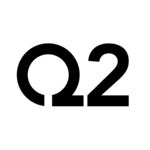Millicom (Tigo) unveils Three Year Operational, Financial and Strategic Targets
Millicom (Tigo) unveils Three Year Operational, Financial and Strategic Targets
Luxembourg, February 14, 2022 – Millicom (Nasdaq: TIGO) will be holding its 2022 Virtual Investor Day today beginning at 9:00 a.m. ET. Millicom’s CEO Mauricio Ramos and the executive team will discuss the company’s three-year operational goals, financial targets1 and strategic plans. Key announcements will include:
1. Targeted organic operating cash flow growth of around 10% per year on average over the next three years.
This reflects expected:
- Mid-single-digit annual organic service revenue growth; and
- Annual CapEx of around $1.0 billion.
2. Targeted cumulative Equity free cash flow2 of $800 million to $1.0 billion over the next 3 years.
3. Near-term target to reduce leverage to 2.5x by 2025.
- With a long-term goal to further reduce leverage to 2.0x.
4. Shareholder remuneration in the form of share buybacks expected to commence in 2023.
- Buybacks at a pace consistent with the achievement of leverage reduction targets
5. Expansion of the Company’s fixed broadband network by a targeted three million additional home passings in the next 3 years.
- The vast majority of the new passings will be FTTH, as the Company accelerates its ongoing transition to FTTH.
- The Company expects to cover 20 million home passings in its territory in the medium term.
- The Company also aims to add over 1 million customer relationship net additions in the next three years.
6. Plan to create a Tower Company to carve out the Company’s portfolio of owned towers.
- This structural re-organisation, which will include up to 10,000 towers, will be aimed at enhancing shareholder return on the Company’s digital infrastructure assets; maximising their business potential; facilitating the attraction of growth capital from new investors; and enhancing strategic optionality around the Company’s infrastructure assets.
- This initiative is expected to be completed in the next 12-18 months
7. Plan to carve out of TIGO Money
- This second structural re-organisation is aimed at enhancing shareholder return on the Company’s nascent Fintech asset; maximising their business potential; facilitating the attraction of growth capital and complementary Fintech expertise to TIGO Money; and enhancing strategic optionality for Millicom.
- TIGO Money has a unique opportunity to increase financial inclusion in TIGO’s market while capturing a leading share of an estimated $14 billion total addressable fintech market opportunity.
- This initiative is also expected to be completed in the next 12-24 months
8. Setting of ambitious ESG Targets
- The Company has submitted for validation its near-term Science-Based Targets, in line with a maximum 1.5°C increase and the Paris Climate Agreement. The Company has also become part of Race to Zero, the UN-backed campaign aimed at promoting a healthy, resilient, zero carbon recovery.
- The Company has set a target of gender parity by 2030. This will include equal gender representation across the entire organisation, as well as in its upper management positions globally. In addition, the Company will continue to train 100% of its employees annually on DE&I; only work with strategic suppliers with DE&I policies & training in place; and continue to promote inclusion of other under-represented groups.
Ahead of the event, Ramos said, “Today, we are outlining our vision for Tigo, a purpose-driven company with a big market opportunity, a clear strategic focus, and a passionate team that makes things happen, the right way, and with Sangre Tigo. The targets we are laying out today are bold and ambitious, and we have well-defined plans in place to achieve them. We hope you will join us as we discuss these plans in more detail today.”
Access instructions and presentation materials are available on Millicom’s website.
-END-
For further information, please contact
| Press: Vivian Kobeh, Director Corporate Communications +1-786-628-5300 [email protected]
Yocasta Valdez, Group Manager Digital Media & Communications |
Investors: Michel Morin, VP Investor Relations +1-786-628-5270 [email protected]
Sarah Inmon, Director Investor Relations
|
About Millicom
Millicom (NASDAQ U.S.: TIGO, Nasdaq Stockholm: TIGO_SDB) is a leading provider of fixed and mobile telecommunications services dedicated to emerging markets in Latin America and Africa. Through our TIGO® and Tigo Business® brands, we provide a wide range of digital services and products, including TIGO Money for mobile financial services, TIGO Sports for local entertainment, TIGO ONEtv for pay TV, high-speed data, voice, and business-to-business solutions such as cloud and security. As of December 31, 2021, Millicom employed approximately 21,000 people and provided mobile services through its digital highways to around 58 million customers, with a fiber-cable footprint of more than 12 million homes passed. Founded in 1990, Millicom International Cellular S.A. is headquartered in Luxembourg. For more information, visit: millicom.com. Connect with Millicom on Twitter, Instagram, Facebook and LinkedIn.
Forward-Looking Statements
Statements included herein that are not historical facts, including without limitation statements concerning future strategy, plans, objectives, expectations and intentions, projected financial results, liquidity, growth and prospects, are forward-looking statements. Such forward-looking statements involve a number of risks and uncertainties and are subject to change at any time. In the event such risks or uncertainties materialize, Millicom’s results could be materially adversely affected. In particular, there is uncertainty about the spread of the COVID-19 virus and the impact it may have on Millicom’s operations, the demand for Millicom’s products and services, global supply chains and economic activity in general. The risks and uncertainties include, but are not limited to, the following:
- global economic conditions and foreign exchange rate fluctuations as well as local economic conditions in the markets we serve;
- Potential disruption due to diseases, pandemics, political events, piracy or acts by terrorists, including the impact of the recent outbreak of the COVID-19 virus and the ongoing efforts throughout the world to contain it;
- telecommunications usage levels, including traffic and customer growth;
- competitive forces, including pricing pressures, the ability to connect to other operators’ networks and our ability to retain market share in the face of competition from existing and new market entrants as well as industry consolidation;
- legal or regulatory developments and changes, or changes in governmental policy, including with respect to the availability of spectrum and licenses, the level of tariffs, tax matters, the terms of interconnection, customer access and international settlement arrangements;
- adverse legal or regulatory disputes or proceedings;
- the success of our business, operating and financing initiatives and strategies, including partnerships and capital expenditure plans;
- the level and timing of the growth and profitability of new initiatives, start-up costs associated with entering new markets, the successful deployment of new systems and applications to support new initiatives;
- relationships with key suppliers and costs of handsets and other equipment;
- our ability to successfully pursue acquisitions, investments or merger opportunities, integrate any acquired businesses in a timely and cost-effective manner and achieve the expected benefits of such transactions;
- the availability, terms and use of capital, the impact of regulatory and competitive developments on capital outlays, the ability to achieve cost savings and realize productivity improvements;
- technological development and evolving industry standards, including challenges in meeting customer demand for new technology and the cost of upgrading existing infrastructure;
- the capacity to upstream cash generated in operations through dividends, royalties, management fees and repayment of shareholder loans; and
- other factors or trends affecting our financial condition or results of operations.
A further list and description of risks, uncertainties and other matters can be found in Millicom’s Registration Statement on Form 20-F, including those risks outlined in “Item 3. Key Information—D. Risk Factors,” and in Millicom’s subsequent U.S. Securities and Exchange Commission filings, all of which are available at www.sec.gov. To the extent COVID-19 adversely affects Millicom’s business and financial results, it may also have the effect of heightening many of the risks described in its filings.
All forward-looking statements attributable to us or any person acting on our behalf are expressly qualified in their entirety by this cautionary statement. Readers are cautioned not to place undue reliance on these forward-looking statements that speak only as of the date hereof. Except to the extent otherwise required by applicable law, we do not undertake any obligation to update or revise forward-looking statements, whether as a result of new information, future events or otherwise.
Non IFRS Measures
This press release contains financial measures not prepared in accordance with IFRS. These measures are referred to as “non-IFRS” measures and are defined below. The non-IFRS financial measures are presented in this press release as Millicom’s management believes they provide investors with an additional information for the analysis of Millicom’s results of operations, particularly in evaluating performance from one period to another. Millicom’s management uses non-IFRS financial measures to make operating decisions, as they facilitate additional internal comparisons of Millicom’s performance to historical results and to competitors’ results, and provides them to investors as a supplement to Millicom’s reported results to provide additional insight into Millicom’s operating performance. Millicom’s Remuneration Committee uses certain non-IFRS measures when assessing the performance and compensation of employees, including Millicom’s executive directors.
The non-IFRS financial measures used by Millicom may be calculated differently from, and therefore may not be comparable to, similarly titled measures used by other companies – refer to the section “Non-IFRS Financial Measure Descriptions” for additional information. In addition, these non-IFRS measures should not be considered in isolation as a substitute for, or as superior to, financial measures calculated in accordance with IFRS, and Millicom’s financial results calculated in accordance with IFRS and reconciliations to those financial statements should be carefully evaluated.
Financial Measure Descriptions
Service revenue is revenue related to the provision of ongoing services such as monthly subscription fees, airtime and data usage fees, interconnection fees, roaming fees, mobile finance service commissions and fees from other telecommunications services such as data services, short message services, installation fees and other value-added services excluding telephone and equipment sales.
EBITDA is operating profit excluding impairment losses, depreciation and amortization, and gains/losses on fixed asset disposals. In respect of the segments Latam or Africa it is shown after the allocation of Corporate Costs and inter-company eliminations.
Organic growth represents year-on-year growth excluding the impact of changes in FX rates, perimeter, and accounting. Changes in perimeter are the result of acquisitions and divestitures. Results from divested assets are immediately removed from both periods, whereas the results from acquired assets are included in both periods at the beginning (January 1) of the first full calendar year of ownership.
Net debt is Debt and financial liabilities less cash and pledge and time deposits.
Net financial obligations is Net debt plus lease liabilities.
Leverage is the ratio of net financial obligations over LTM (Last twelve month) EBITDA, proforma for acquisitions and disposals made during the last twelve months.
CapEx is balance sheet capital expenditure excluding spectrum and license costs and lease capitalizations.
Operating Cash Flow (OCF) is EBITDA less Capex.
Operating Free Cash Flow (OFCF) is OCF less changes in working capital and other non-cash items and taxes paid.
Equity Free Cash Flow (EFCF) is OFCF less finance charges paid (net), less lease interest and principal repayments, less spectrum, less dividends and advances for dividends paid to non-controlling interests, plus dividends and other cash repatriation received from joint ventures.
Please refer to our 2020 Annual Report for a list and description of additional non-IFRS measures as well as reconciliations to their nearest IFRS equivalent.
This information was prior to this release inside information and is information that Millicom is obliged to make public pursuant to the EU Market Abuse Regulation. This information was submitted for publication, through the agency of the contact person set out above, at 14:00 CET on February 14, 2022.
1 All financial targets herein are rebased to reflect Millicom’s IFRS reporting scope and excluding Africa.
2 Effective today, we have changed our definition of Equity free cash flow (EFCF) to include spectrum. Please refer to the Financial Measure Descriptions at the end of this press release.
Attachments
- PR_Millicom (Tigo) unveils Three Year Operational, Financial and Strategic Targets _021422
- PR_SPA_Millicom (Tigo) unveils Three Year Operational, Financial and Strategic Targets _021422
- PR_SWE_Millicom (Tigo) unveils Three Year Operational, Financial and Strategic Targets _021422





































